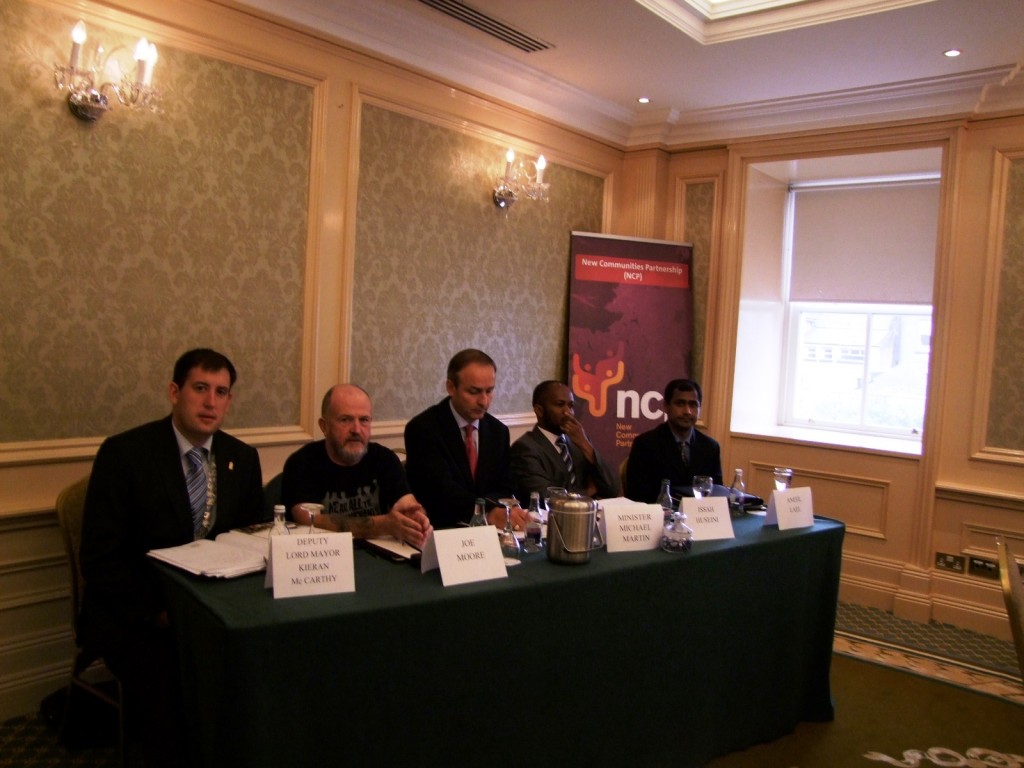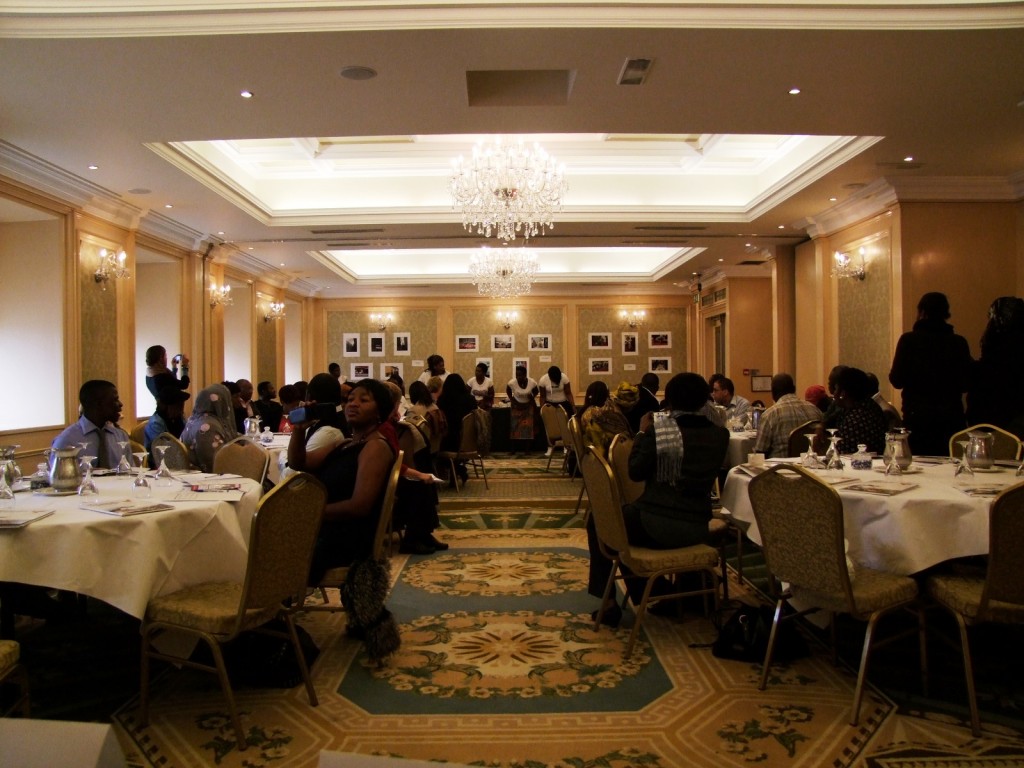
Conference on Social Exclusion,
Organised by New Communities Partnership
Saturday 18th August
Imperial Hotel. Cork
Speech notes for Cllr Kieran McCarthy,
deputising for the Lord Mayor
Minister Martin, speakers, ladies and gentlemen,
On behalf of the Lord Mayor, many thanks for the invitation here this morning.
As a geographer by trade, I study Cork as my living, what makes its tick, what gives it a sense of place. I’m always intrigued by the idea that Cork is a place of coming and going. As a port in Western Europe, the essence of Cork has inspired many entrepreneurs and artisan families tosettle in the region through the ages.
Some peoples’ stories began in Cork; others brought their talents and ambition abroad and never returned to their native city whilst others from abroad spent their entire life in the rebel city. So the concept of social inclusion for individuals and families not born of Cork should not be a new factor.
However, the struggle to fit in has always been a factor, much written about and debated. But it’s not just the migrant who has found himself or herself working hard to fit in, it is also the Cork citizens who are also searching to find a niche to carve for himself or herself. However, perhaps this case cannot just be applied to Cork but also to every settlement in the world where new groups arrive to add to the settlementscape mix.
As someone who gives talks and walks on Cork’s past to the wider Cork Community and someone who teaches in Cork schools the value of history to students, I am very conscious of the importance of identity to people in forging a sense of belonging and a feeling of fitting in, being wanted, being respected, being trusted, being cared for.
Co-production and Core Values:
In the United States in recent years, advocates of Social Inclusion have harnessed ideas of Co-production as Core Values. These own values have also formed part of my own work over the last few years.
Firstly, I firmly believe that every human being has something to give and can be a builder or a contributor
Secondly that core individuality values also include whatever it takes to raise healthy children, support families, make neighbourhoods safe and vibrant, care for frail and vulnerable people, redress justice, and make democracy work.
Thirdly social networks are important to all of us. All of us require a social infrastucture. These social networks require ongoing investment of social capital generated by trust, reciprocity and civic engagement.
Fourthly, I embrace firmly the concept of life long learning, Educational programmes enhance all our lives and also enhance social inclusion of marginal groups. Learning at any age is seen as an effective tool for all of us to offer us new perspectives on life.
And Fifthly, I embrace the idea of reciprocity;The impulse to give something back to society. That wherever possible, we must replace one way with two-way transactions, both between individuals and between people and institutions. That there must be a sort of exchange.
Challenges:
Across the world governments and large organisations – including educational institutions – are adopting social, economic, education and community approaches that contribute to more cohesive and productive communities. This broadly termed ‘social inclusion agenda’ is a response to a widening gap between those who live in poverty and those who have plenty.
This gap is not just economic. It is a gap in access to information, to social networks and services, to food security, to technology, to health and wellbeing, to educational opportunities, and ultimately to meaningful and secure employment.
Coupled with that during the boom times in Ireland, net inward immigration is estimated to have accounted for 80% of the demographic increase with the number of immigrants living in Ireland rising from 220,000 to 400,000. Non-nationals in 2007 comprised some 8% of the workforce – one of the highest in the EU.
Attempts have been made by our government and City Council to make sure that certain social inclusion did take place. It was successful at some levels through social partnership agreements which sought integration and embracement of cultural diversity. However, perhaps for the Irish citizen. the advent of new citizens came very quickly, the migrant wove their way into a conservative Ireland putting a spotlight on social inclusion for migrants more than ever before.
With the aims of this conference in mind, I would like to offer a few notes. Recent studies in the Ireland and UK argue a number of key messages with regard to social inclusion:
1. No challenge to exclusion can succeed without a co-productive and partnership approach, working with excluded people is essential at every level of development and delivery.
2. Social inclusion is about more than getting people back to work; it is also about wider participation. All people have a right to access those social, economic, educational, recreational and cultural opportunities, and physical health services, that most citizens take for granted.
3. Social inclusion is about more than access. Social inclusion is more than improving access to mainstream services – it is about participation in the community, as employees, students, volunteers, teachers, carers, parents, advisors, residents; as active citizens.
4. We need to work across traditional boundaries. Reducing barriers to inclusion requires integrated effort across government and non-government agencies at all levels, horizontally and vertically, influencing policy and practice through direct links to individual experience.
5. A sense of personal identity supports recovery and inclusion. People are more than just a category or a diagnosis and have valuable contributions to make, not just needs to be met. Services should support people to access the opportunities available within the many communities to which they belong and to make valued contributions as active citizens.
6. To promote inclusion we need pathways from segregated service provision into mainstream services. Groups or activities solely for segregated sections of the community may reinforce segregation unless they are part of a supported pathway into mainstream services accessed by everyone.
So in essence I feel we need to focus on developing effective multidimensional social inclusion strategies focused on addressing the multidimensional nature of disadvantage that is experienced by socially excluded individuals and groups in our community.
I would like to end with a number of questions, just put up your hand if you agree with the following statements:
1. Cork is for the most part is free from racism and prejudice.
2. All places in Cork are shared, safe, inclusive and welcoming for everyone.
3. Positive and harmonious relationships exist between communities in Cork.
4. Cork is a community where people of all backgrounds work, live, learn
and play together.
5. Minority ethnic people participate in public, political and economic life.
6. Minority ethnic people benefit from equality in health and welfare.
7. Cork is a place where cultural diversity is embraced, respected, valued.
They are just a couple of questions to set the ball rolling. Thanks again for the invitation. I am honoured to be able to officially launch this event.
